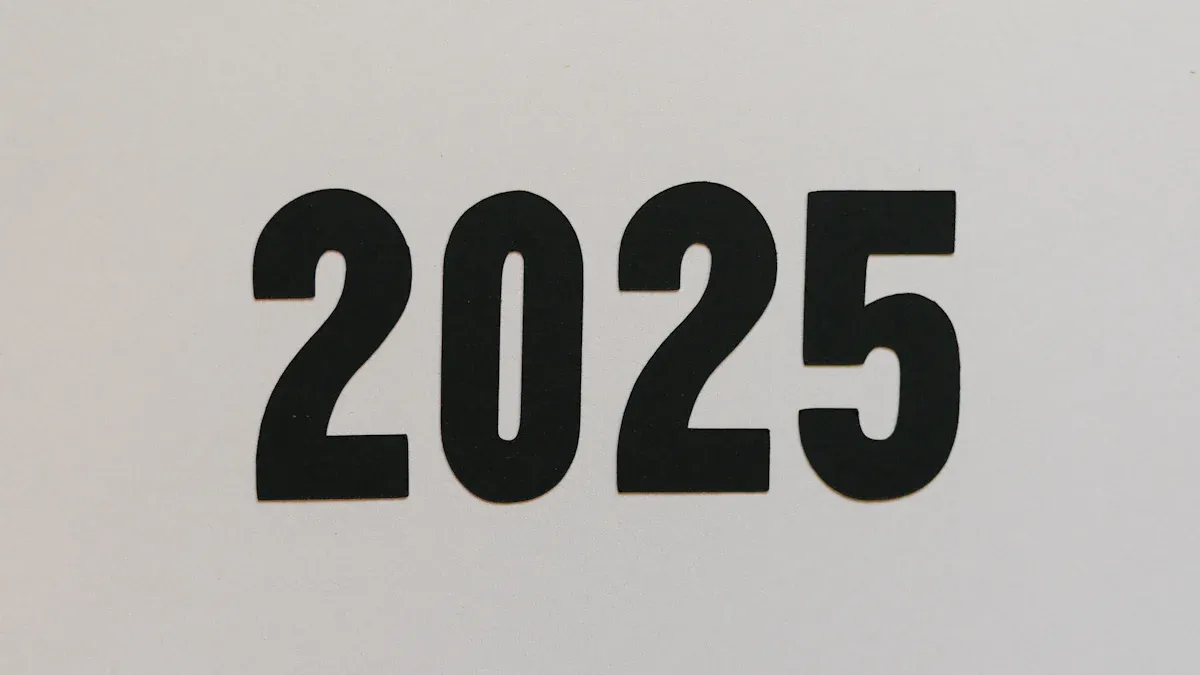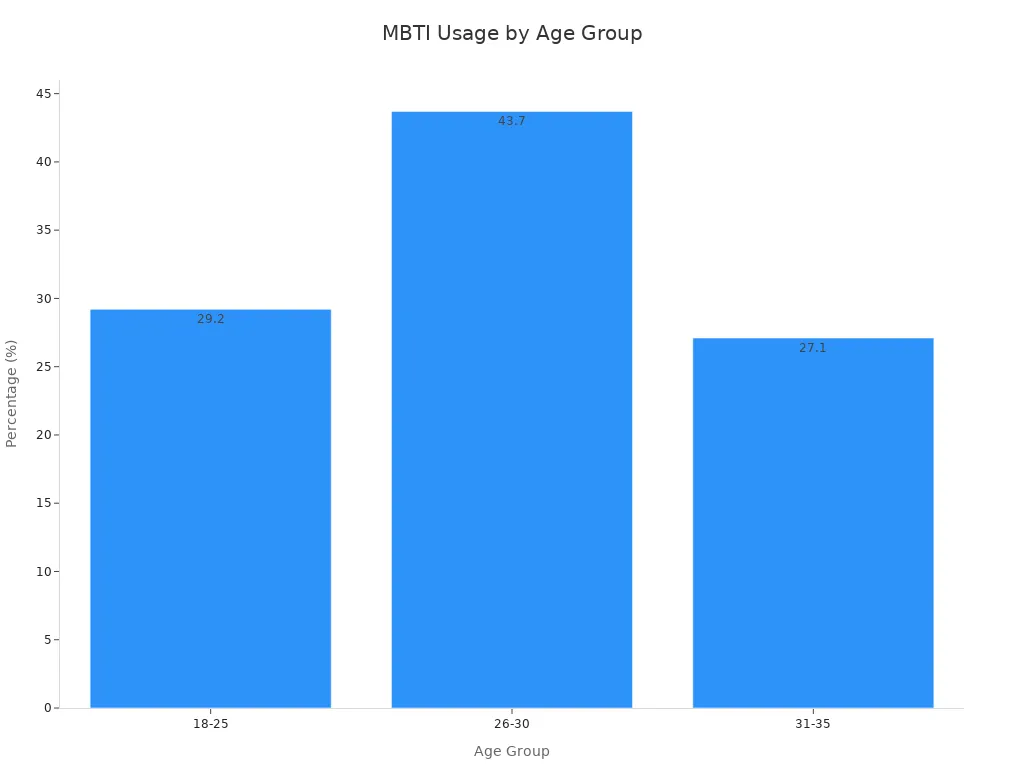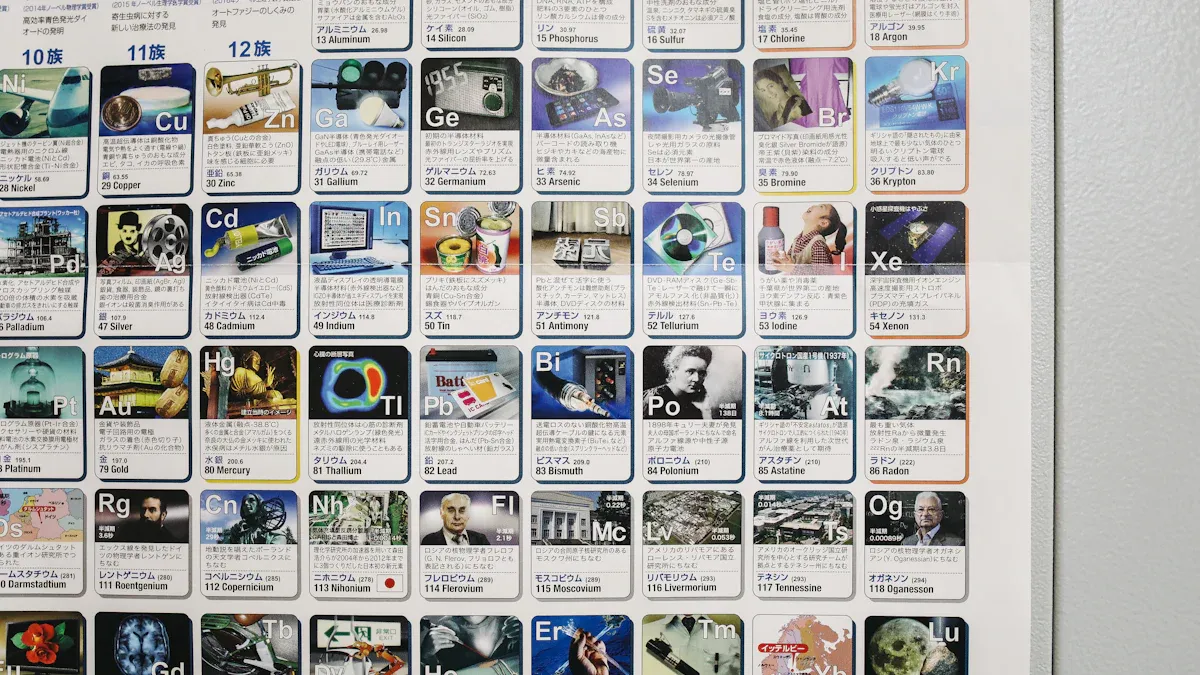Why MBTI Remains a Go-To Personality Tool in 2025

You see MBTI everywhere in 2025. Companies use it to help you understand your work style, build stronger teams, and support your growth.
- MBTI sparks self-awareness and respect for different personalities.
- It helps you fit in, communicate better, and feel valued at work or school.
People of all ages find it easy to use.
Key Takeaways
- MBTI uses simple trait pairs to make personality types. Anyone can try these types with fast online tests.
- People use MBTI to learn more about themselves. They set goals and talk better with others. It helps teams work better at school or work.
- MBTI is still popular because it changes with new trends. It uses things like AI and online tests. This helps people connect and grow in many parts of life.
MBTI’s Everyday Appeal

Simplicity and Accessibility
You want a personality tool that feels easy to use and understand. MBTI stands out because it uses just four simple pairs of traits: Extraversion vs. Introversion, Sensing vs. Intuition, Thinking vs. Feeling, and Judging vs. Perceiving. These pairs combine to create 16 clear personality types. You don’t need a psychology degree to get it. The questions are straightforward, and you can find many free or paid tests online.
Here’s a quick look at some popular MBTI tools in 2025:
| MBTI Tool | Time to Complete | Cost | User Experience |
|---|---|---|---|
| Crystal’s 16-Personality Test | ~5-10 minutes | Free | Fast, easy, instant results; premium for more features. |
| MBTI Online Test (Official) | ~45 minutes | $49 | Detailed, research-backed, but needs a certified pro to access. |
| IDR Labs | ~10-15 minutes | Free | No sign-up, lots of quiz options, modern look. |
| TypeFinder by Truity | ~10-15 minutes | Free/$19 | Free basics, paid for deeper insights, simple to start. |
Tip: Free tests are quick and easy, but official MBTI reports give you more depth and accuracy.
You can find MBTI resources almost everywhere, from apps to websites. Even though official tests need a certified expert, you still have plenty of ways to explore your type.
Self-Understanding and Growth
When you read your MBTI type for the first time, you might feel like someone finally gets you. Many people say it’s eye-opening. You learn why you make decisions the way you do or why you like certain activities. MBTI helps you spot your strengths and see where you can grow.
- You can use your MBTI results to set goals that fit your style. For example, if you’re an INFP, you might set flexible, values-based goals and use journaling to reflect. If you’re an INTJ, you might prefer detailed plans and regular check-ins.
- MBTI helps you understand how you gather information and make choices. This can make you more confident and help you work on your weaker areas.
- You can also find role models who share your type and learn from their journeys.
MBTI isn’t just about labels. It’s a tool for self-improvement. You can use it to pick a career, build better habits, or even improve your relationships.
Social and Workplace Use
You see MBTI in action at work, in school, and even in your friend group. Companies use it to match people with the right teams and roles. During hiring, MBTI can help spot who might fit best with the company culture. It also helps managers understand how to support each person’s growth.
- MBTI is a favorite for team-building. It helps everyone see each other’s strengths and work styles. This cuts down on misunderstandings and makes teamwork smoother.
- Schools use MBTI to help students pick classes, plan careers, and build confidence. Platforms like VitaNavis use MBTI to boost student engagement and success.
- MBTI workshops teach you how to communicate better and solve conflicts. Teams that use MBTI often see better collaboration and higher job satisfaction.
Gen Z loves MBTI, too. Teens and young adults use it to talk about themselves, make friends, and even manage social anxiety. It’s a popular topic in group chats and on social media. Teachers say MBTI helps students explore who they are and how they fit in.

MBTI’s positive and relatable descriptions make it easy to talk about your personality. You can use it to explain your needs, understand others, and build stronger connections. Whether you’re working on a project or hanging out with friends, MBTI gives you a common language for understanding each other.
Cultural Impact and Adaptation

Influence in Media and Online
You can find MBTI almost everywhere online in 2025. It shows up in books, articles, and quizzes. The official Myers-Briggs website says about two million people take the test each year. Many popular websites have MBTI quizzes. Even banks and money apps use them to help you learn about your spending habits. Books like The Personality Brokers explain how MBTI became part of daily life, from jobs to the military.
- Online articles talk about how your type affects your friendships and money.
- You can try free quizzes, like the Financial Personality Quiz, to learn more about yourself.
- Many articles share real stories and tips for using MBTI in dating or at work.
- Official MBTI sites give you detailed information and resources if you want to know your type.
On social media, people share their types in their bios or make funny memes about their strengths and habits. Some users like to compare types and talk about who gets along best. You might see that introverts like texting, while intuitive types enjoy deep talks online. Brands use MBTI types in ads to connect with you and make their ads more fun.
Note: Social media has changed how people use MBTI. Sometimes, it feels like a contest to be popular, but it still helps you meet others and learn about yourself.
Adapting to New Trends
MBTI keeps up with new ideas. In 2025, it changes to fit new trends in psychology and society. Companies want more diversity and inclusion, so they use digital personality tests to build better teams. Studies show these tools can help increase diversity by 30%. Many companies now use AI and machine learning to make MBTI tests more fair and personal. About 75% of companies plan to use these new tools.
You probably take MBTI tests online now, not on paper. This started during the pandemic and is still common because it works well. Research shows online tests are just as good as paper ones. You also see MBTI tests that focus on emotional intelligence and cultural differences. Schools and workplaces use these new tests to help people feel understood and valued.
- Companies like IBM use AI to look at your answers and help with hiring.
- Big brands, like Unilever and PepsiCo, use AI-powered MBTI tools to find the best people for jobs and keep workers happy.
- Gamified and adaptive tests make the experience more fun, especially for younger people.
You notice that MBTI now works with other tools, like StrengthsFinder and 16Personalities. These tools help you find your strengths and your place in a team or class.
Criticisms and Enduring Popularity
Some people say MBTI is too simple. Critics think it puts you in a box, using only two choices for each trait. They say real personalities are more complicated and should be measured on a scale. Some experts point out that MBTI does not include traits like neuroticism, which other models, like the Big Five, do.
- MBTI uses self-reporting, so your answers might change if you take the test again.
- Some old studies showed people could get different results if they were close to the middle on a scale.
- Critics also say MBTI started from ideas, not strict science, and that it can feel like pop psychology.
Even with these points, MBTI still has many fans. Practitioners remind you that the tool has over 70 years of research and real-world use. They ask you to look at new studies, which show that MBTI can be reliable and helpful, especially for self-awareness and team building.
Here’s a quick look at why MBTI is still trusted in 2025:
| Reason | Details |
|---|---|
| Used by Top Organizations | Fortune 100 companies, universities, and government agencies use MBTI for communication and teamwork. |
| Strong Theoretical Roots | Based on Carl Jung’s ideas, giving it a special place among personality tools. |
| Reliable Results | Studies show high reliability, with test-retest scores averaging .87. |
| Practical Value | Helps you understand yourself and others, which is useful in many real-life situations. |
| Ongoing Research | Over 11,000 studies have looked at MBTI, showing its lasting impact. |
Tip: MBTI works best when you use it as a guide, not a rulebook. It helps you start conversations and build understanding, even if it is not perfect.
You see why MBTI still matters in 2025. It helps you understand yourself and others, supports teamwork, and adapts to different cultures.
- You can use it for self-growth and better communication.
- Remember, MBTI has strengths and limits.
Take time to reflect on how it fits your life.
FAQ
What if my MBTI type changes over time?
Don’t worry! Your answers might shift as you grow. You can retake the test. Your results just show where you are right now.
Can MBTI help me choose a career?
Absolutely! MBTI gives you ideas about your strengths. You can use these insights to explore jobs that fit your style and interests.
Is MBTI better than other personality tests?
- MBTI is easy to use and understand.
- Some people like the Big Five or StrengthsFinder more.
- Try different tools. See which one helps you most.
